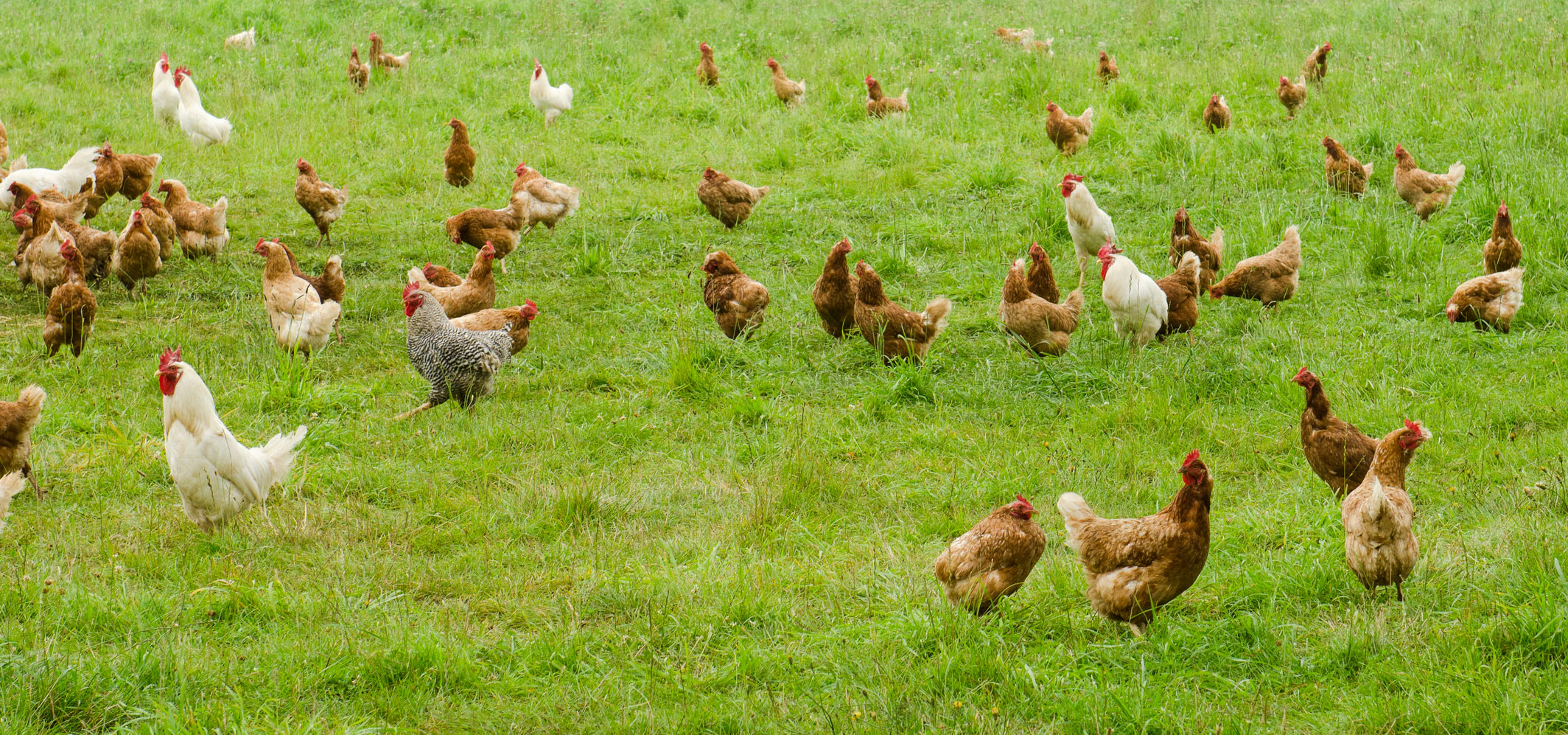Meat production has never entirely been cruelty-free; perhaps it's unrealistic to even expect so. Multiple, dubious slaughter methods and chickens caged together to near-suffocation formed the backbone of the wholesale meat industry, until free-range (or organic) farming came around. However, free-range farming may be undeserving of the halo that crowns it.
Gayatri Organic Farms in Chhattarpur has been around for 25-26 years. Batak Ram, who heads Sales and Relations, feels that organic farming is less cruel because animals or birds are given a freer environment to live in, as opposed to being painfully cooped together or being injected with hormones.
"Birds live in areas that are less dense. They can move freely and roam as they please," he says. "They're slaughtered in one jhatka, which gives them less or no time to feel pain."
Although experts have established jhatka as one of the healthier and also more humane ways of slaughter, "the most humane will always be stun before slaughter, as once stunning takes place (bolt to the head, usually, or electric volt depending on animal size) the animal is rendered senseless before it is struck," explains Jessica Wragg, who has worked as a butcher for eight years with Richard H Turner in London. "A lot of this, however, is subjective to a lot of the components of the slaughterhouse. Staff must, of course, be properly trained, as location is key when inserting the stun bolt. If it misses the brain, the animal will feel everything," she adds.
Halal is preferred mainly for reasons of religion and health (since the animal's blood is drained entirely) but it requires very particular skill and expertise for it to not be painful for the animal. "75% of halal slaughtered animals for the mass-market are stunned before slaughter," Wragg told Binge. "Of course, those which are not will feel everything, and the slaughter will be as painful as can be. In relative terms, around 5-10% of non-halal meats are not stunned correctly, which is a huge number compared to the 25% of halal meats which are."
Cases of halal have been reported where the meat hadn't been stunned, or the wrong nerve was slit, leaving the animal screaming in pain until it passed away. Although these are more common in countries or areas where pristine expertise cannot be vouched for, they present worry to the cause of animal welfare.
While organic farming mostly evades the risks involved with halal or regular slaughter, it has been debated that the process is equally, if not more morally questionable. The argument says that raising animals in friendlier conditions might be more humane at the beginning, but it translates to gaining the animal's trust only to betray it in the end when the animal is slaughtered.
Conscious meat-eaters tend to worry about where their meat comes from and how it gets to the table. However, it might not always be possible to ensure that the meat has been manufactured humanely. Perhaps the only answer to the moral dilemma around ethical omnivorism is to not eat meat at all.




